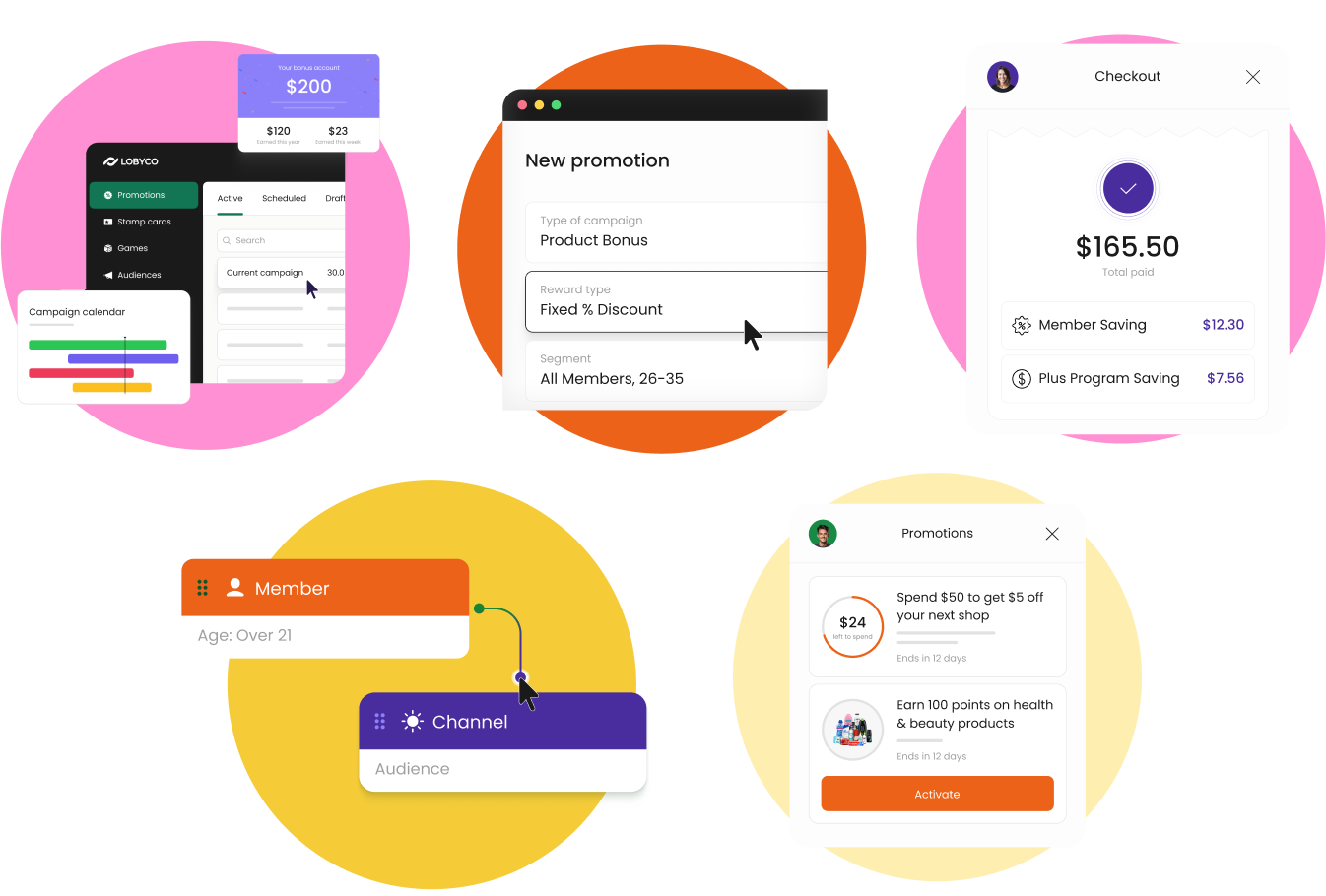Uncover the Meaning of Customer Engagement
Customer engagement refers to the connection between a brand and its customers, built through ongoing interactions across various touch points like social media, emails, and in-store experiences. It goes beyond transactions as engaged customers feel valued and are more likely to become repeat buyers and brand advocates.
By prioritizing engagement, businesses can build lasting relationships that lead to loyalty, trust, and long-term success in a competitive market. It’s not just about making a sale; it’s about creating a meaningful connection that keeps customers coming back.
Learn why customer engagement is crucial for your business
The importance of customer engagement goes far beyond initial transactions—it’s the foundation of long-term business success. Engaged customers are more likely to return, purchase more frequently, and recommend your brand to others. This not only increases customer retention but also drives higher lifetime value.
To take it a step further, we may go with: Engagement fosters loyalty, which can transform occasional buyers into loyal customers who advocate for your business. These customers help spread positive word-of-mouth, often becoming unpaid ambassadors for your brand. This kind of advocacy builds trust among potential new customers, which is invaluable in an age where people rely heavily on recommendations and reviews.
Additionally, engaged customers provide more opportunities for feedback, giving brands insights into what they’re doing right and where they can improve. This continuous loop of feedback helps businesses refine their products, services, and customer experience to meet evolving needs.
In short, strong customer engagement directly impacts your bottom line by increasing retention, satisfaction, and customer lifetime value which are critical factors in driving sustainable growth.
Explore proven customer engagement strategies
To build strong customer engagement, brands must go beyond traditional approaches and implement strategies that create meaningful connections. One of the most effective ways to do this is through personalization. Customers expect brands to understand their preferences and cater to their individual needs. Tailoring messages, offers, and content to each customer creates a more personal experience and strengthens the loyalty.
Loyalty programs are another powerful tool for engagement. Offering rewards for repeat purchases or exclusive benefits helps build a sense of connection and encourages customers to stay loyal to your brand. By integrating these programs with multiple touchpoints, whether online, in-store, or through mobile apps, you can create a seamless experience that keeps customers engaged.
Omnichannel engagement is key to staying connected with customers wherever they are. Engaging through social media, email marketing, live chat, and in-store interactions ensures customers feel supported and valued throughout their journey. Finally, content marketing plays a major role in engagement, providing customers with valuable information, entertainment, or inspiration that keeps them coming back for more.
When these strategies work together, they create a holistic approach to customer engagement that builds trust, drives loyalty, and fosters long-term relationships.
See how technology enhances customer engagement
Technology has revolutionized how businesses engage with customers, offering a wide range of tools that make engagement more efficient and personalized. Customer relationship management (CRM) systems allow companies to track customer interactions and tailor their engagement efforts based on individual behaviors and preferences. With a robust CRM in place, businesses can deliver the right messages at the right time, enhancing the overall customer experience.
Data analytics and artificial intelligence (AI) are also key players in boosting engagement. These tools enable businesses to analyze customer data in real-time, offering insights into shopping habits, preferences, and behaviors. With AI, brands can create personalized recommendations, automate responses, and even predict customer needs before they arise, allowing for proactive engagement.
Mobile apps and chatbots provide another layer of seamless engagement. With a well-designed app, customers can shop, engage with loyalty programs, and interact with the brand wherever they are. Chatbots, on the other hand, provide instant, 24/7 support, keeping customers engaged and informed around the clock. Combined, these technologies make customer engagement easier, more personalized, and more impactful.
Boost customer engagement with gamification
Gamification is an increasingly popular strategy to keep customers engaged by adding an element of fun to the shopping experience. By incorporating game-like features such as challenges, rewards, and progress tracking, brands can motivate customers to interact more frequently with their products or services. This not only boosts engagement but also encourages repeat visits and deeper brand loyalty.
For example, offering points for purchases that customers can redeem for rewards gives them an incentive to stay engaged. Adding levels or milestones that customers can achieve increases the excitement, while friendly competition—like leaderboards or challenges—can enhance the sense of community among customers. These elements make engagement more dynamic, turning everyday shopping into an enjoyable experience.
When done right, gamification doesn't just drive immediate interaction—it fosters long-term loyalty by making customers feel rewarded and invested in the brand.
Measure and improve customer engagement for lasting success
Tracking customer engagement is crucial for understanding how well your strategies are working and identifying areas for improvement. Start by measuring key engagement metrics such as engagement rate, customer churn rate, and customer lifetime value. These metrics provide insight into how frequently customers interact with your brand and how loyal they are over time.
To improve engagement, use data-driven tools that analyze customer behavior. For instance, heatmaps can show how customers interact with your website, while social media analytics reveal how engaged your audience is with your content. CRM systems also offer valuable insights into customer preferences and past interactions, helping you refine your engagement strategies to better meet their needs.
Once you’ve gathered the data, continually refine your approach. Whether it’s through more personalized content, improved customer support, or tweaking your loyalty programs, keeping a close eye on customer feedback and engagement levels will help you create lasting connections that drive long-term business success.
Explore the future of customer engagement
The future of customer engagement is set to be driven by technology. Artificial intelligence and machine learning will allow brands to automate more personalized experiences, ensuring customers receive timely, relevant interactions. Predictive analytics will anticipate customer needs, offering solutions proactively.
As omnichannel engagement becomes standard, businesses must provide seamless interactions across platforms, whether in-store, online, or through mobile apps. This integration will be essential to meet the expectations of tech-savvy customers.
Ultimately, the future of engagement lies in creating deeper, more meaningful relationships through data-driven, personalized strategies that foster loyalty and long-term success.







